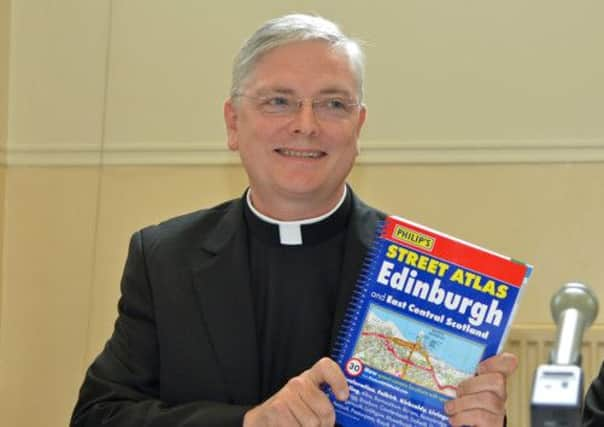Leaders: Archbishop wise to follow Pope’s lead


So this newspaper wishes Monsignor Leo Cushley, the new Catholic Archbishop of St Andrews and Edinburgh, good fortune in taking up his new post at a difficult time.
Little is known of Mgr Cushley, but initial reports suggest he holds orthodox views on the key doctrinal issues facing the Catholic church. This is perhaps unsurprising. The new archbishop may, however, be wise to take a somewhat more nuanced view of his role in the life of the nation than has been evidenced in recent years from senior Catholic clergy in Scotland.
Advertisement
Hide AdAdvertisement
Hide AdThe 52-year-old from Lanarkshire is reputed to be one of the Vatican’s most gifted diplomats. That may be useful, because what the Church in Scotland needs now is a tone that is, in the broadest sense of the word, diplomatic.
The need for a new approach rests not on the saga of O’Brien’s fall from grace – although senior Church figures have acknowledged that having a cardinal condemn homosexuality while being guilty himself of homosexual indiscretions leaves the Church open to the charge of hypocrisy.
The issue is primarily one of tone. But a more realistic appreciation of the role of the Church in contemporary Scottish society might also be worth considering.
Homosexuality is, perhaps, a useful example. The vituperative language used by senior clergy in the debate about gay marriage has shocked many lay members of the faith, and some clergy, too.
Of course, the Church has its doctrines. But the Church also has a duty of pastoral care to all Catholics, including gay Catholics who might understandably have felt under siege as this debate has developed.
There must, at best, be a question mark over whether that duty of pastoral care has been honoured in some of the highly inflammatory language used by senior clergy in this debate.
Many ordinary Catholics – perhaps more than the Church hierarchy would be willing to admit – are relaxed about the issue of gay marriage in secular Scottish society. And many are, frankly, dismayed at the apocalyptic tone struck by some senior clergy in discussing this proposed legislation.
Mgr Cushley might be wise to ask himself if a less hectoring tone might be in order. Perhaps, in public pronouncements, he will consider taking his lead from the tone set by the new Pope. In the short time he has been Bishop of Rome, the statements to date from Pope Francis have been characterised by a refreshing new sense of humility, both in terms of himself and his Church.
Advertisement
Hide AdAdvertisement
Hide AdSpeaking about his appointment yesterday, Mgr Cushley spoke of the need for “reconciliation and healing” within the Church in Scotland, and of the need for a sense of “charity”. This was a most promising start.
Elitist label does not fit the Fringe
AS THE curtain prepares to go up on the world’s greatest arts event, it would not be the Edinburgh Festival without a healthy dose of controversy.
Today, this comes in the form of an angry broadside from experienced producer Pippa Bailey, who has railed against the “posh English blokes” who, she claims, dominate the Fringe.
Is this fair? There is no denying that “posh English blokes” have played a prominent role in the history of the Fringe. Some of its definitive acts of the past half- century have been from the blue-blooded establishment, notably various manifestations of the Cambridge Footlights team that can claim to be the progenitors of much of modern British comedy. And it is undoubtedly true that in Edinburgh in August there is no shortage of well-heeled troupers from top English schools and universities.
But to complain that they dominate the Fringe is ridiculous. All human life is on stage at the Fringe, with almost 3,000 shows from every class, race and political persuasion, to say nothing of those who come from all corners of the earth to have their moment in the Edinburgh limelight.
Ms Bailey is on firmer ground when she points out that the economics of putting on a show in Edinburgh become more and more difficult every year.
But where there is a will, there is a way, and there is no evidence that increasing costs are dissuading performers from coming to Edinburgh. With the numbers of shows up more than 6 per cent this year, the evidence suggests otherwise.
Ms Bailey is quite wrong to claim the Fringe is elitist. It is the opposite of elitist. It is, quite simply, the greatest show on Earth.